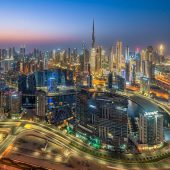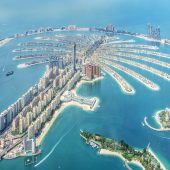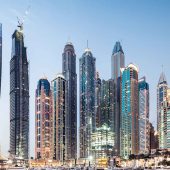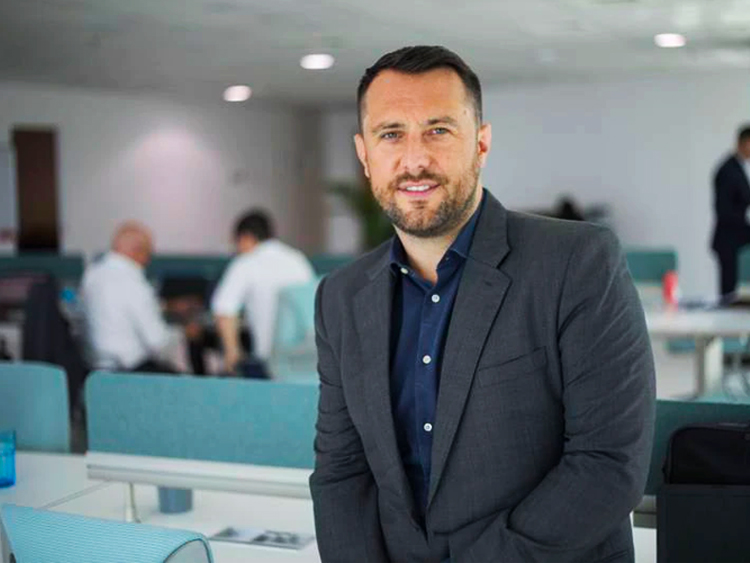Real estate entrepreneur Myles Bush believes that if you want something, you have to work hard for it
:quality(70)/cloudfront-eu-central-1.images.arcpublishing.com/thenational/KSEDSJPWXFCQDOVBCQRK6QYY6U.jpg)
Real estate entrepreneur Myles Bush effectively retired earlier this year, but then became a parent and started a new company with friends.
The Briton, 37, is co-founder of Phoenix Homes, a “hybrid” Dubai real estate agency that gives brokers more autonomy and 80 per cent commission.
A millionaire at the age of 28, Mr. Bush made headlines when he sealed deals for Dubai’s most expensive villa in 2016, the largest land sale in 2017 and largest residential lease in 2019.
Mr. Bush lives with his wife and baby daughter in Emirates Living.
Did money feature in your upbringing?
Dad’s an engineer, mum is a nurse. It was a middle-income family. We weren’t wealthy, but not struggling. At the same time, my parents made it clear from an early age that if I want something, I’ve got to go out and get it. If I asked dad for a fiver, he’d say: ‘Not a problem. Go and paint the fence.’
I had a paper round as a 13-year-old for £10 ($13.68) a week. On Saturdays, I’d knock on people’s doors, see if they wanted their cars washed for £3. I’ve always had money. I’m the eldest of three and it was me setting that example.
Did you learn self-sufficiency?
Also motivation. I was the kid who had the ability to buy new rollerblades, go 10-pin bowling or ice skating while most of my friends were struggling, reliant on pocket money. I took it upon myself to get my piece of the cake. That’s given me the backbone for what I’ve achieved later in life; if you want something, you’ve got to hustle, work hard.
When I got to 15 or 16 years old, I was dreaming of having a Ferrari, that Lamborghini. Fast-forward 10 years and I had a Bentley and a Ferrari. That same mindset I had when I was 13, but my goals and motivations were different.
What brought you to Dubai?
All my professional life has been in the world of property. I arrived 14 years ago working for somebody else. I was sleeping on a mattress in a friend’s maid’s room while trying to learn my craft. I worked for somebody for two years, did well and when I had my own team underneath me, I said: ‘I can do this for myself.’
So I bought into an existing company, which back then was Powerhouse Properties (later PH Real Estate), and grew it from a three-man team to 63. I stayed for 12 years until I sold my half of the business.
What drew you to that profession?
I was following the money, but first of all, I’m a people’s person. I enjoy human interaction, I can’t think of anything worse than being behind a desk 10 hours a day. I could be out and about, meeting new people, seeing new places. I love buildings and design.
But I wanted to own the thing myself, which is what I did from the age of 24. It enabled me to make a lot of money. I would typically deal with high-profile clients, often royal family, celebrities and politicians.
Does the hybrid model benefit brokers?
The market needed a shake-up. What I call high-street agencies … typically the commission structure is 50/50 or 55/45, you’ve got to be in at 8.45am, make a certain number of calls per day. During Covid-19, I realised that if you’re on a commission-only based job, you should be self-motivated.
The idea behind Phoenix Homes was to only take entrepreneurial brokers who want to have their skin in the game. The model is quality over quantity. We’re building an elite hit squad. They pay their own marketing contributions, but they rip out the lion’s share of the money: 80 per cent.
Has parenting changed your work outlook?
I’ve understood the importance of getting balance, spending time with family. In the real estate world, we can get carried away, become greedy, working 11pm finishes. Becoming a father was a massive eye-opener – that we should judge people on results, not the hours in an office. I became a father just after the market started booming in Dubai.
:quality(70)/cloudfront-eu-central-1.images.arcpublishing.com/thenational/FDIYCYILAZAILL6QKCFYU4CFBI.jpg)
Does money still drive you?
Money itself has never motivated me. It’s the options and opportunities that stem from money that always excited me. Having a few extra zeros in your bank balance does not put a smile on someone’s face, but being able to provide for your family, to make sure loved ones have the best health care when needed …
How do you grow your wealth?
I put my money where my mouth is and reinvest back into property. It is what I sell, what I develop, what I buy back into. I’ve got property in England, Spain and in Dubai. Some have been purely for rental yield. I’ve upgraded various properties and resold them.
I made 25 per cent last year on a flat in London. Most people were either losing money or breaking even. I did the same on Palm Jumeirah, in The Meadows, apartments in Dubai Marina. If you build a good property portfolio, you’re making money while sleeping.
There’s a good expression that the real estate market can become sick, but it will never die. I believe that, so my investment strategy is typically 90 per cent in property, the other 10 per cent is either in cash or something I can turn into cash quickly.
I like to have a nest egg, save cash. I’ve got other assets in terms of gold and commodities. It’s vital that you’ve got multiple sources of income.
Do you have cherished purchases?
I bought my mum a Porsche when I was 30. We’d gone out for lunch and were walking past a forecourt in West Sussex. She was telling me about the days she owned a convertible Spitfire and said it looked like that, pointed at the Porsche. I walked over and bought it.
I got a massive kick out of that. It’s those kind of gold moments that stand out, where I’ve been grateful what money can provide … being able to provide really good private health care for friends and family who have struggled, sending mum and dad off to the Maldives three years ago and my sister around Australia.
Have your priorities changed?
When I was in my mid-20s, young, single, my priorities were having fast cars and big nights out. Suddenly a member of the family gets sick, the priority becomes to look after that person, whatever the cost, and then the cars are immaterial.
Then a little daughter comes along and she becomes a priority. I used to be cool with a blacked-out Rolls-Royce and the latest Jay-Z album on. I’ve now got a 4×4 with a child seat and a Peppa Pig CD.
Being able to do things for friends, family and charity gives me a massive buzz.
Is there anything you’ve squandered money on?
Cars have always been my worst investment. I’ve had the Rolls-Royces, Bentleys, Ferraris. They are a depreciating asset, you are pouring money down the drain when you buy those flashy cars. At the same time, I don’t regret it. You get enjoyment for those first couple of weeks and then suddenly the shine comes off and you think, that wasn’t a very smart idea.
What luxuries are important to you?
There’s nothing physical I’m emotionally attached to … the real estate, cars, gold, the watches. There are things we want to spend money on. If I’m with my wife and daughter, I like to fly first class, but by myself I’ll still jump in economy. I don’t want to waste money. I love treating people around me who I love to nice holidays.
Do you plan for retirement?
I sold the company when I was 36 and was officially retired. I had done my financial planning based on me living to 100. But when my daughter and this opportunity of Phoenix Homes came along, three months later, it excited me.
We need something to focus on, a reason to get up in the morning to challenge us and take us out of our comfort zone. I’ve seen people retire with a lot of money and become bored or miserable, tired and lost their energy. I don’t want to become that person.
